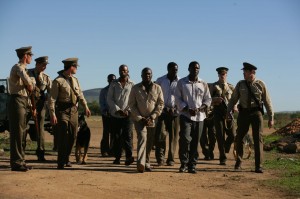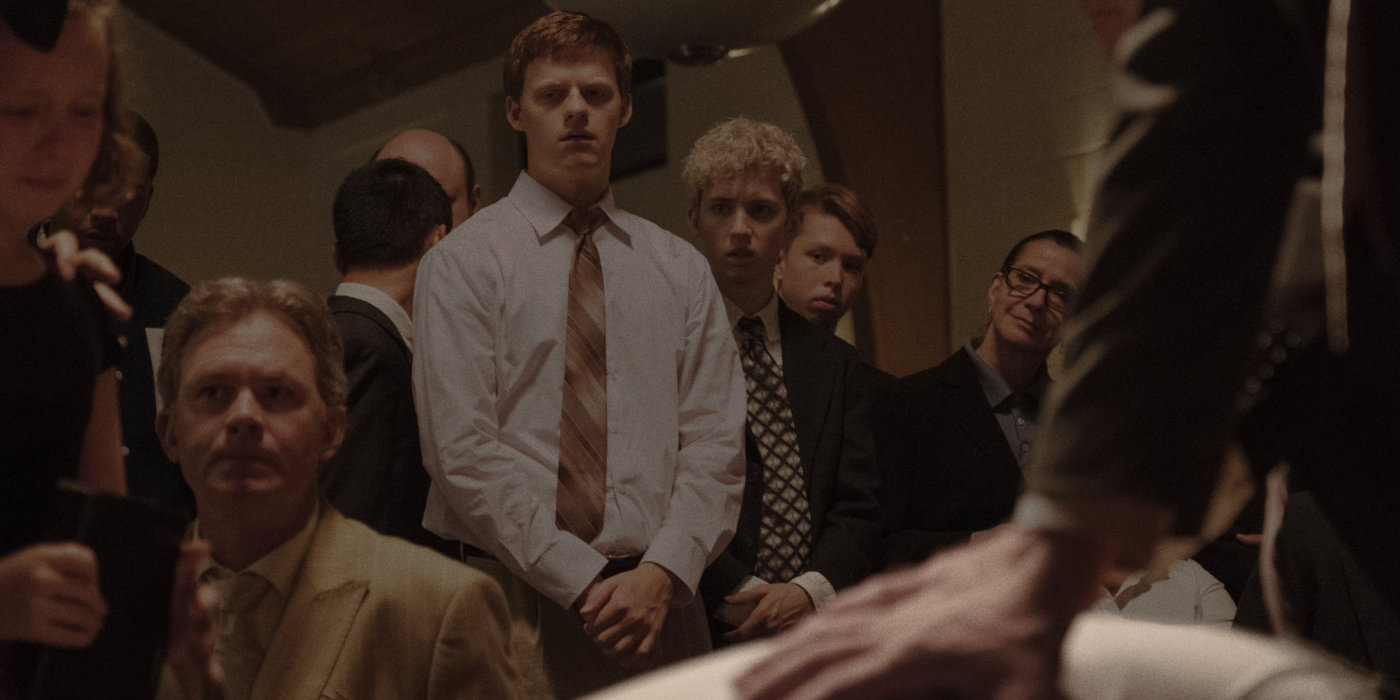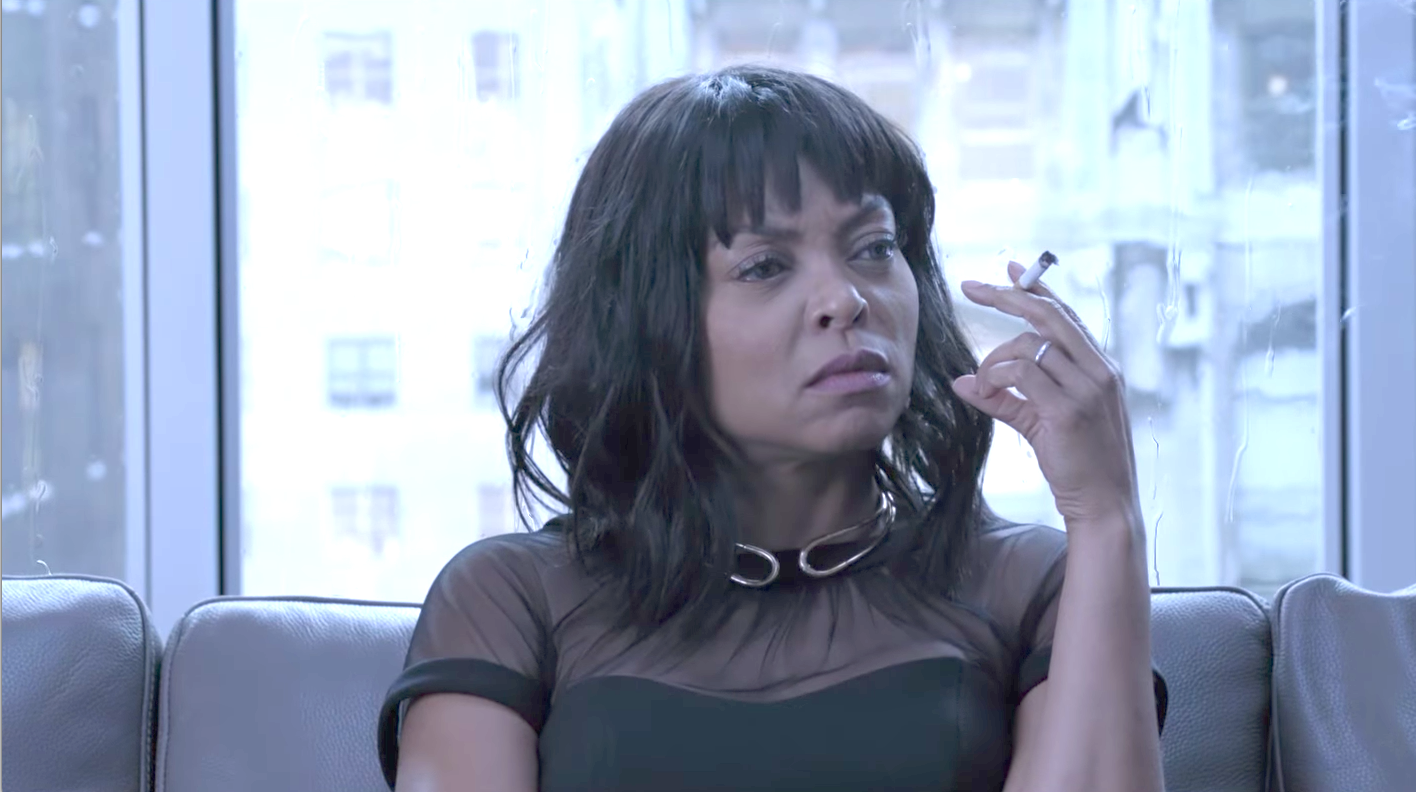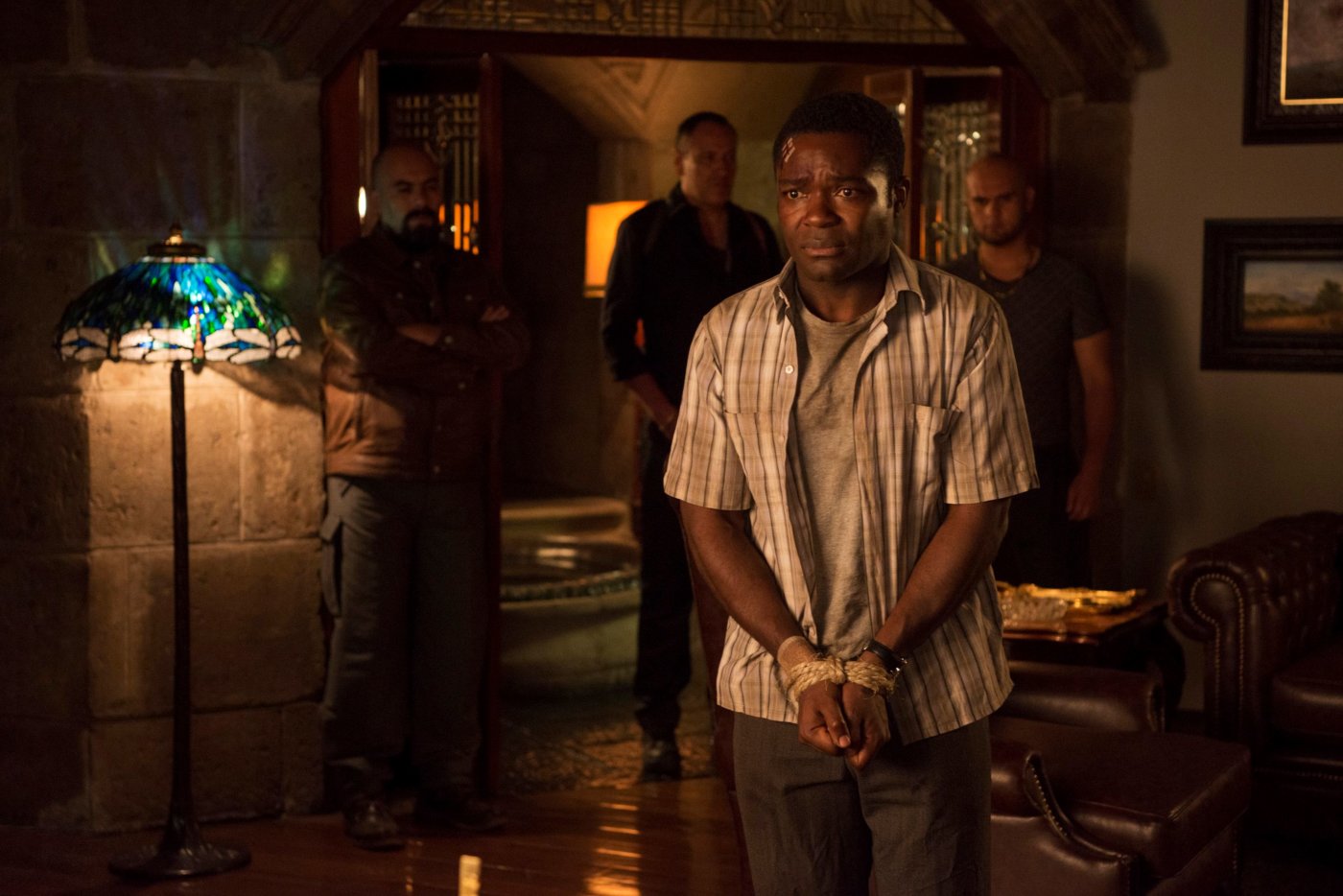Oh my, a looooooong walk indeed. It takes forever for Mandela: Long Walk to Freedom to get going. This is unfortunate, because if you’re like me, Nelson Mandela (Idris Elba) was in jail during your formative years and you didn’t know or care who he was until anti-Apartheid activists thrust him into the forefront. I personally didn’t believe Nelson Mandela would have amounted to much of anything had he not been jailed for political reasons.
Mandela: Long Walk to Freedom does absolutely nothing to dispel this notion. The first half of Freedom is a mess. The horror that a government — any government — could reflect upon WWII and turn to white supremacist rule is something only you bring to the table. The screenplay skips around like a little girl in a lea picking posies; I think the theme is the key events of Mandela’s pre-incarceration life, but it’s debatable. We meet Nelson as a lawyer — a clever lawyer, but one who seems to be making a game of racism to help out clients; he gets a woman off on a theft charge because her accuser refused to answer personal questions from a black man. There’s no mention of whether the acquittal represented justice. Then we see a black man beaten to death by white cops in a South African prison. Was the beating racially motivated? Is this a common occurrence? The movie assumes but doesn’t really say. In fact, we’re led to assume a whole bunch of  evils represented by Apartheid, but I didn’t even get a good idea of what Apartheid segregated exactly. Was is just the trains? Bathrooms, too? Are the poor blacks of South Africa poor because of Apartheid or are they just poor? I need more exposition, movie.
evils represented by Apartheid, but I didn’t even get a good idea of what Apartheid segregated exactly. Was is just the trains? Bathrooms, too? Are the poor blacks of South Africa poor because of Apartheid or are they just poor? I need more exposition, movie.
And until Nelson Mandela adopts his trademark white hair in prison, I didn’t really care about the man at all. In his early days, he comes off as philanderer, abusive father and reluctant leader. Long Walk even seems to imply that he was jailed for legitimate criminal offenses and not because of his opposition to Apartheid, which we all believe. Winnie Mandela (Naomie Harris) is the one captured and abused purely for political reasons. Nelson doesn’t seem to represent the true voice of the people until he speaks to them from prison cell. It takes a while for him to get there –his one-room SRO holdover lasts, literally, decades — but when he does, finally, that’s when the portrait of greatness takes shape. The Nelson Mandela who brought South Africa from racist minority rule to present-day (relative) tolerance? Yes, he shows up somewhere in the middle, somewhere with his mail heavily edited and a struggle just to get long pants for prison wear. Don’t get too frustrated like I did.
Idris Elba looks about as much like Nelson Mandela as Howie Mandel. His large, muscular frame suggests he’s most comfortable playing Middle Linebacker for the St. Louis Rams; alas, he was born on the wrong side of the pond for such activity. He doesn’t really remind one of Nelson Mandela in thought or gesture, either. Not until he become Old Mandela (E-I-R-S-A?), that is. To tell the truth, probably all that matters is that Elba gets Old Mandela right – those who remember pre-incarceration Nelson Mandela are outnumbered by the other group by, I’m guessing, roughly 5,000,000 to 1. In this, however, is a lesson to all that greatness is confined neither by space nor age. The importance of Nelson Mandela is the man who went from jail to president, not the man who just went to prison.
Nelson he couldn’t make bail
THE MAN even cut up his mail
You don’t have to touch
To mold minds, as such
Or even get out of his jail
Rated PG-13, 139 Minutes
D: Justin Chadwick
W: William Nicholson
Genre: No justice, no peace
Type of person most likely to enjoy this film: Anti-Apartheid activists
Type of person least likely to enjoy this film: Nazis



